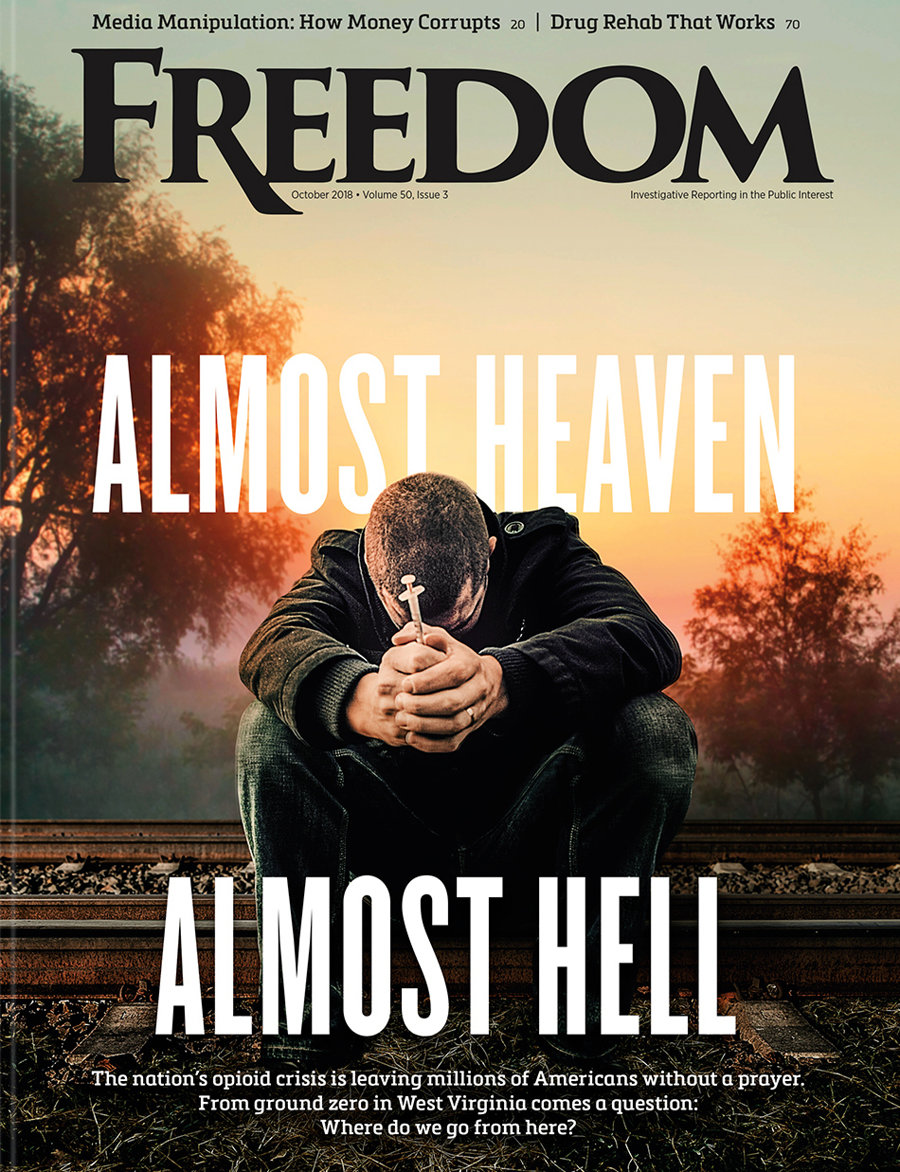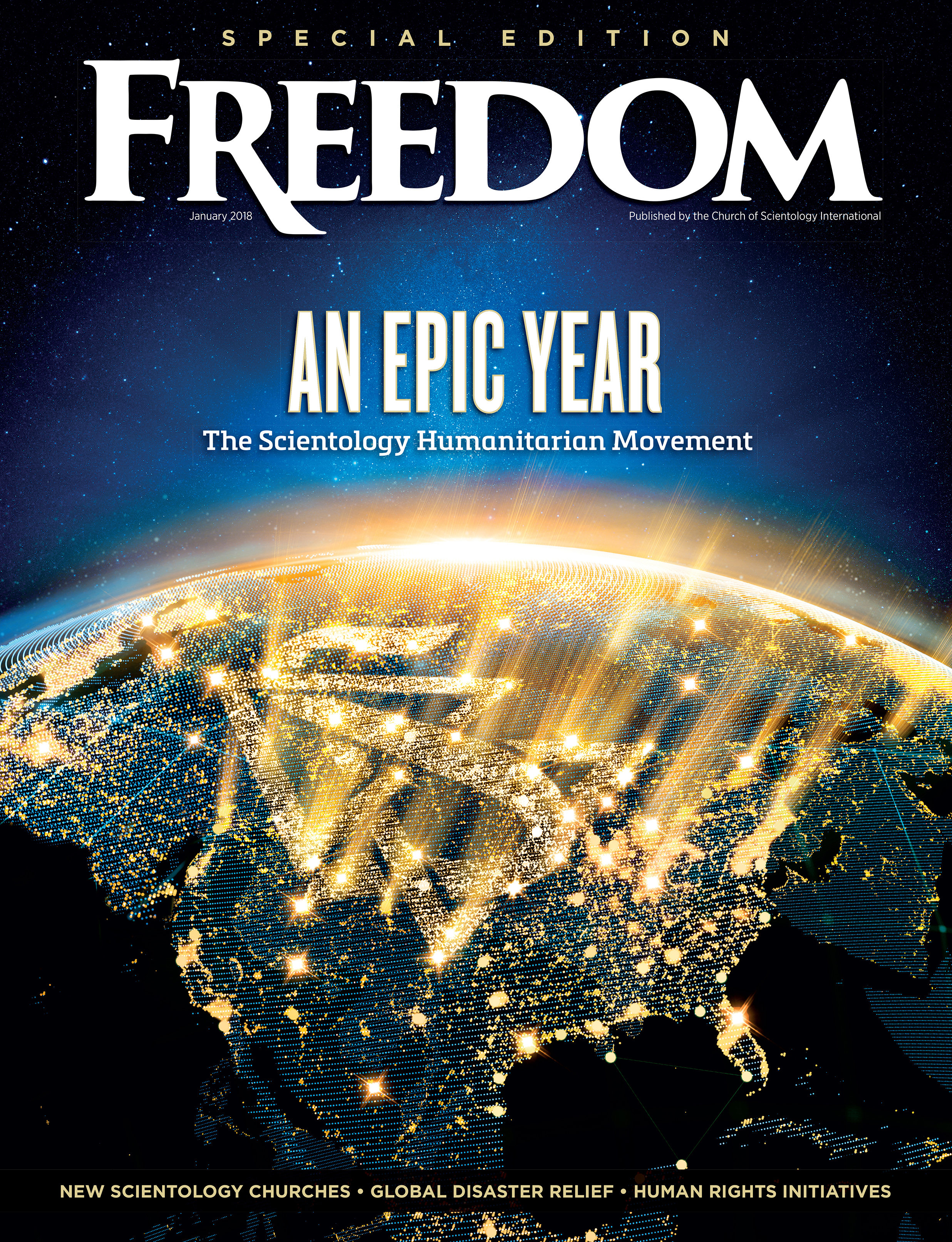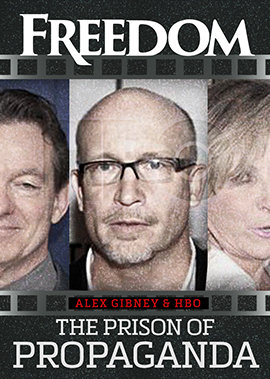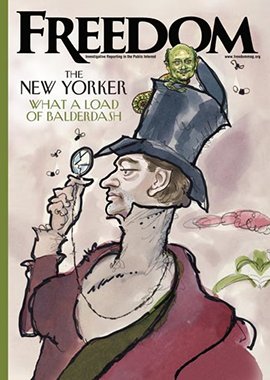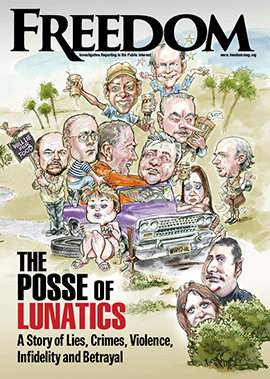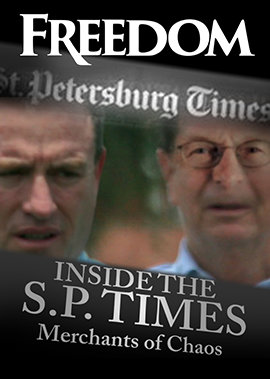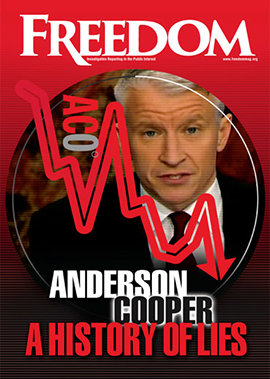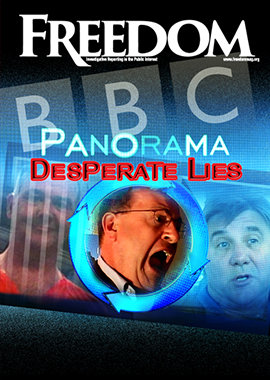The incident, occurring just last month, was not an outlier. The chances of contact with a mental health professional leading to rape are 37 times greater than rapes occurring anywhere outside a psychologist or psychiatrist’s office.
As the negative statistics associated with the mental health professions and the tools of their trade continue to skyrocket—among them mind-altering, often suicide-inducing psychotropic drugs, debilitating psychosurgery and mentally crippling electroshock torture—one wonders if psychiatry’s very existence might have been a terrible, tragic, costly and wholly avoidable mistake.
Some years ago, Freedom posited a world without religion, taking up John Lennon’s dare in “Imagine.” Just 24 hours with no religion. What would the world be like? Aside from the nearly total vanishment of charity work, the absence of the 20 percent of beds in medical facilities sponsored by religious institutions triggering a humanitarian crisis, not to mention the 45 million volunteers connected with faith-based groups now gone, leaving untold millions to go hungry and die—aside from those apocalyptic repercussions, everything would be fine, just fine, without religion for one day.
But what if we asked the same question about psychiatry? What would happen to the world if we woke up one morning and found ourselves in an alternate universe—one where the psychiatric industry had never existed?
Would there be a difference?
Yes.
A noticeable difference.
Here are just a few of the ways that the absence of psychiatry would matter in our lives:
The disappearance of “mental disorders.”
The psychiatric bible, the Diagnostic and Statistical Manual of Mental Disorders (DSM), contains 374 disorders, not one of them validated by lab tests, blood tests or pathology. They are, instead, voted into existence by a panel of psychiatrists who dream up symptoms that as often describe everyday behaviors as not. There is zero resemblance between these invented maladies and actual science.
Without the subjective and random judgment of those self-appointed arbiters of who is or is not sane, millions of individuals would be free to pursue their happiness and live their lives without having their personality traits labeled “illnesses.”
Without psychotropic drugs, our communities would be safer. Period.
With no “disorders” “diagnosed,” there would be:
No psychiatric drugs, no psychosurgery and no electroshock.
One hundred million human beings, including 20 million children, have been prescribed or otherwise coerced into taking psychiatric drugs. The nonprofit mental health watchdog Citizens Commission on Human Rights (CCHR) cites 30 studies that link antidepressants, antipsychotics, psychostimulants, mood stabilizers and sedative hypnotics to adverse effects that include hostility, mania, aggression, self-harm, suicide and homicidal thoughts. With psychiatry gone, all those would now be off the table, as well as the amnesia—permanent or temporary—associated with electroshock torture. And with no more surgical removal of parts of the brain, we would have at last emerged from the Dark Ages.
With no more psychiatric drugs and other devices of death, there would be:
Safer schools, safer streets and safer homes.
A CCHR report documents dozens of school and mass shootings, stabbings and senseless acts of violence committed by those under the influence of psychotropic drugs or withdrawing from them. Adults of a certain age can recall a time long ago when people didn’t have to double lock their front doors after dark, and school security guards weren’t necessary. With the absence of psychotropic drugs, we would be less likely to hear such things as, “But he was such a peace-loving, law-abiding man. How could he have strangled his wife and attempted suicide?” (A judge in that case ruled that the antidepressant the man was taking was the culprit.)
Without psychotropic drugs, our communities would be safer. Period. And with safer communities and fewer homicidal or suicidal thoughts and actions, there would be:
Less fear and anxiety in the environment and therefore no desperate need for potentially lethal mental “sciences” that survive not on healing but on harming through the use of government handouts.
With the hundreds of billions of tax dollars spent on psychiatry and psychiatrists over the years freed up, more money could be allocated to the actual necessities of society like education, infrastructure—and with that, job creation—environmental protection, scholarships and other opportunities for youth, along with research to fight and cure the actual illnesses that afflict us, like cancer and heart disease.
But who, you ask, would I go to with my troubles?
Go to your minister, rabbi, imam, pastor, pandit (Hindu), granthi (Sikh), healer (Indigenous) or bhikkhu (Buddhist), just as people have for centuries. If you identify with no religion, find a spiritual director you feel comfortable with. Or simply confide in a trusted friend. There’s no law against telling a caring person your troubles. Talking it out helps.
With the potentially deadly wild card—the psychiatrist—no longer a factor, the absence of that destructive pseudoscience in our civilization might very well result in a more caring and understanding world, one where families are tied closer to one another in a mutual bond of help, and one in which religion plays an even greater, more unifying and more benevolent role than it does now.
It would be a society without sudden, preventable human tragedies that devastate the individual, the family and the community. And one where life made sense.
It would be a world where we felt less isolated from one another.
And less lonely.
I see the other question in your eyes: What to do with all the unemployed psychiatrists?
Here’s an idea: Train them to use their hands in a craft like carpentry or any of the construction trades—painting, ceramic tile setting, heating and air conditioning, plumbing (but please, no electrical).
In this way, with patience and under strict guidance, they may yet learn the joys of holding an honest job—and making something useful for a change, rather than mayhem.






